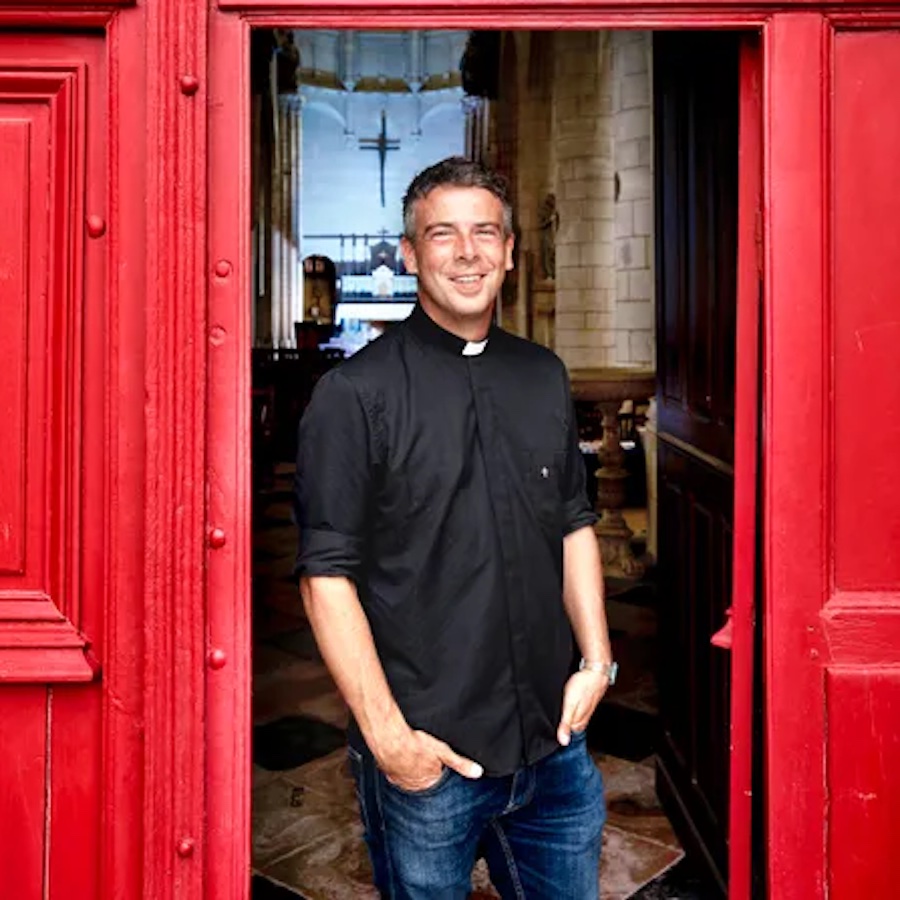No judging, more forgiveness
No judging, more forgiveness (10%)
1. The first step: The Church should not judge anyone. Even those who do not conform to its ethical standards
2. … so that people learn to not judge each other and to forgive and ask for forgiveness
3. Feeling judged, a strong cause of estrangement. The cause for almost 30% of participants.
4. Those that are separated and divorced suffer rejection and feel isolated from the ecclesial community
5. LGTBI people are also among those most judged and rejected.
6.It hurts to see others being judged: it drives people away by showing a lack of mercy
7. But not everything goes: Jesus points out sin when it exists, and he fought evil relentlessly
The voice of the participants
«I am a practicing Catholic, I participate in groups, but I do not receive Jesus in the Eucharist because my husband is divorced. I really miss the Eucharist; I have been married to him for 35 years, when I was not a practicing Catholic. I think people in my case should be welcome. That’s why many go to other religions»
“I am divorced because my ex-husband chose a homosexual life after 27 years of marriage. Although I highly respect the precepts of the Roman Catholic Church, it hurts me deeply to think: if I join someone else now, if God allows it, I will not be able to receive Communion. Divorce was inevitable and I fought for my family! I would feel unfairly left out
from Eucharist. Maybe many go through the same anguish as me.”
Missionary Voices
Do not judge for not being judged
A reflection about abortion
F. Matthieu Jasseron
The Magisterium, the Gospel
The Magisterium
“The Lord asks us above all not to judge and not to condemn. If anyone wishes to avoid God’s judgement, he should not make himself the judge of his brother or sister. Human beings, whenever they judge, look no farther than the surface, whereas the Father looks into the very depths of the soul.
How much harm words do when they are motivated by feelings of jealousy and envy! To speak ill of others puts them in a bad light, undermines their reputation and leaves them prey to the whims of gossip. To refrain from judgement and condemnation means, in a positive sense, to know how to accept the good in every person and to spare him any suffering that might be caused by our partial judgment, our presumption to know everything about him. But this is still not
sufficient to express mercy. Jesus asks us also to forgive and to give. To be instruments of mercy because it was we who first received mercy from God. To be generous with others, knowing that God showers his goodness upon us with immense generosity.”
Misericordiae vultus, 14
The Gospel
“Do not judge, so that you may not be judged. For with the judgment you make you will be judged, and the measure you give will be the measure you get. Why do you see the speck in your neighbor’s eye, but do not notice the log in your own eye? “
Matthew 7, 1-3
“Jesus stood up and said to her, “Woman, where are they? Has no one condemned you?” She said, “No one, Lord.” And Jesus said, “Neither do I condemn you; go, and from now on sin no more.” Again Jesus spoke to them, saying, “I am the light of the world. Whoever follows me will not walk in darkness, but will have the light of life.”
John 8, 10-12
Results of the questionnaires
What reasons do you think keep people away from the Church?
Stats
- Disagreements with their approaches and positions 48.1%
- Unclear or inappropriate messages 26.6%
- Scandals: pedophilia, corruption,… 43.7%
- Feel judged 27.6%
- Does not respond to their concerns and priorities 20.6%
- Boring masses and ceremonies 22.1%
- Lack of understanding with the people who are already inside 26.1%
- Not feeling welcomed, being seen as anonymous 30.5%
- The Church is absent from current lives 21.3%
Feeling welcomed is an important factor of estrangement
49.183
Surveys analyzed
How to move forward
Theological standpoint
People welcome God’s salvation at different rates and with different accents, within their own consciousness. For this reason, it is necessary to stop before that inner space of others, distinguishing, in any case, possible sinful acts from the person who commits them. Living a religion that is not legalistic, but that favors the person’s relationship with God.
Moral-behavioural standpoint
Educate priests and preachers to promote goodness and freedom without remaining in the condemnation of
behaviors and opinions.
Structural and organisational standpoint
Support and multiply schools of theological and moral formation by inviting teachers, catechists, fathers/mothers of families, to promote formation based on the experience of values…
Pastoral-pedagogical standpoint
Avoid “personal condemnations” on people, in any situation. Also those considered in an irregular one, as separated / divorced with new forms of couple, and LGTBI people… (This is the desire of many people; resolve it by facing
the controversies of our time, basing the moral qualification of the fact, and avoiding excessive legalism). Salvation is offered to every person just because they exist. Prevent the preaching of the Gospel from becoming a source of condemnation or a universal recipe. Defend people attacked or mistreated for their ideas or moral situation, because above all
we should be merciful as the Lord.

